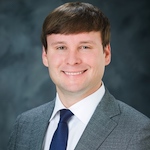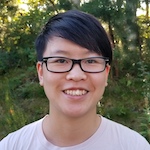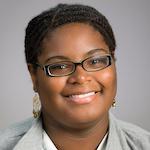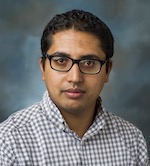
Adam R. Rivers, PhD - PI (SY)
PhD Massachusetts Institute of Technology / Woods Hole Oceanographic Institution, 2009
I am a microbial ecologist turned computational biologist. I began my career woking on nutrient limitation in marine phytoplankton and became involved in metagenomics early. During the Deepwater Horizon oil spill I applied metatranscriptomics to understand the fate of oil and gas released. In 2014 A became a research scientist at the Joint Genome Institute, a part of Lawrence Berkeley National Laboratory. I was the head of the Metagenome Program at JGI until 2017. In January of 2017 I joined the Agricultural Research Service to start a group in the Genomics and Bioinformatics Research Unit focused on microbiomes and applied machine learning in agriculture.
Agriculture is an exciting field to apply microbiome methods. A key question in microbiome research is how the genetics of the host and the ecology of the microbial community interact. Plant breeders have extensive pedigree and genotypic information that enables us to start unraveling the interaction experimentally. Microbiome analyses is poised to upend conventional methods for food safety allowing us to track and eliminate pathogens, develop agricultural systems that limit their impact through environmental manipulation. Agriculture in an area where microbiome science will have a tremendous impact.
At the USDA Agricultural Research Service I hold a career scientist position as a Computational Biologist in the Genomics and Bioinformatics Research Unit.
I have a courtesy faculty appointment in the Department of Microbiology and Cell Science and an affiliation at the Emerging Pathogens Institute at the University of Florida.
Academic CV
Google Scholar profile
Postdoctoral Associates

Karla Franco Melendez, PhD
PhD Arizona State University, 2020
Dr. Franco Melendez graduated in June 2020 from the Microbiology doctoral program Arizona State University. Her PhD dissertation centered in characterizing the effect of physiologically relevant fluid shear levels on the human enteric pathogen Salmonella Typhimurium. Specifically, she studied the effect of fluid shear on pathogenesis-related stress responses and changes in gene expression across different phases of growth. In July 2020, Dr. Franco Melendez joined the USDA-ARS as a post-doctoral fellow in bioinformatics, under the supervision of Dr. Adam Rivers. Her current position focuses on engineering soil microbial consortia with inhibitory phenotypes against the phytopathogen Ralstonia solanacearum using new Bayesian optimization algorithms and deep learning methods. Additionally, she is currently performing a comparative analysis on the intestinal microbial community composition and antimicrobial profile of poultry specimens from the pre- and post-antibiotic eras.

Jeremy Winders, PhD
PhD Mississippi State University, 2019
Dr. Winders is working on a project to determine the sex of chicken eggs when they are laid by applying high-throughput Proton transfer reaction mass spectrometry (PTR-MS) and machine learning.

Sveinn Einarsson, PhD
PhD Old Dominion University, 2021
Dr. Einarsson is is a University of Florida postdoc using Bayesian networks constructed from metagenomics and exo-metabolomics data to model microbe metabolite interactions in a tomato pathogen system using Ralstonia solanacearum.

Ian Rambo, PhD
PhD University of Texas, Austin
Dr. Rambo is joining the group this summer and working on a jointly advised project with the Food Processing and Sensory Quality Research Unit in New Orleans, LA to develop better food allergy diagnostic tests. Using data from arrays of food allergen peptides and protein structures from AlphaFold he is designing 3D convolutional neural networks to predict allergic reactions to foods.

Lei Ma, PhD
PhD Massachusetts Institute of Technology / Woods Hole Oceanographic Institution, 2022
Dr. Lei Ma received her PhD in 2022 from the MIT-WHOI Joint Program in Oceanography/Applied Ocean Science and Engineering. Her dissertation focused on the ecology of marine microorganisms in coral reefs and in Atlantic killifish. She is particularly interested in genotype-environment-microbiome interactions in animal hosts, such as the influence of host evolution on its microbiome. As a postdoc at the USDA-ARS, she is working on developing methods to type Salmonella strains and predict antimicrobial resistance.
Former members

Vipul Shinde
MS Candidate, University of Georgia
Vipul is working with our lab and the Bacterial Epidemiology and Antibiotic Research Unit in Athens, GA o develop a Bayesian network to predict the secondary antibiotic resistances are selected by the application a primary antibiotic.

Alicia Foxx, PhD
PhD Northwestern University, 2020
Dr. Foxx was a USDA/ORISE Postdoctoral Fellow for the USDA SCINet Scientific computing initiative. She has experience in plant ecology and worked on meta-analysis in metagenomics data, batch effect correction in metagenomics and seed microbiomes. She is currently a research scientist at the Chicago Botanic Garden.

Ravin Poudel, PhD
PhD University of Florida, 2018
Dr. Poudel is currently a Bioinformatics Scientist at Xbiome in Boston. He was an ARS funded post-doctoral researcher and the Department of Microbiology and Cell Science at the University of Florida who worked in the group. He is also worked on methods to model microbial communities using amplicon sequencing, metabolomics, and Bayesian networks in order to identify key microbial structures and functional signatures to support the selection of candidate taxa for microbial-consortia to enhance crop production. He also developed Guidemaker Software for the design of CRISPR/Cas Guide RNAs. More on his research is here.

Chris Gaby, PhD
PhD, University of Tennessee
Dr. Gaby is working at an early stage microbiome start-up. At GBRU he worked on large scale-comparative genomics in Salmonella and the application of Machine learning methods for genotype and phenotype prediction in Salmonella. More on his research is here

Ryo (Leo) Iwata
BS University of Florida, 2018
Leo was a Python based analyst that worked creating bioinformatic workflows for machine learning and data processing.

Anushka Swarup, MS
PhD Candidate, University of Florida
Anushka is a PhD student with Dr. Damon Woodard in the Electrical & Computer Engineering Department at the University of Florida. Her primary area of research lies in the domain of Image Analysis wherein she has developed applications for fields ranging from agricultural monitoring to biometrics.
For the Agricultural Microbiomes group, she developed a prototype web application for designing CRISPR-Cas guide RNAs